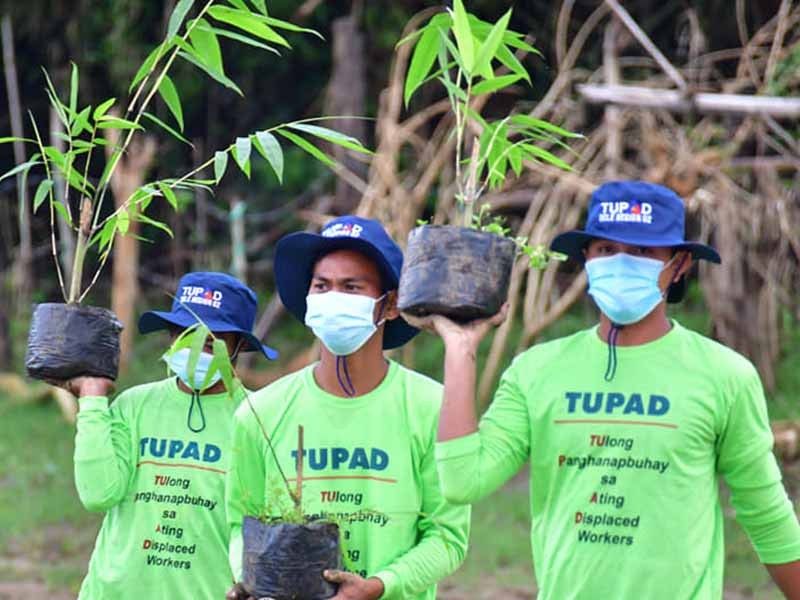DSWD: 'Food stamp' beneficiaries must enroll in job programs, look for work

MANILA, Philippines — Beneficiaries of a planned P40-billion food stamp project of the Department of Social Welfare and Development will be required to join government job-generating programs and show they are looking for work, a measure that an official said is meant to end a so-called culture of dependency on government aid.
In an interview on radio dzBB on Sunday, DSWD Undersecretary Eduardo Punay said the 1 million beneficiaries of the planned program will be required to present certificates from the Department of Labor and Employment and the Technical Education and Skills Development Authority prove efforts to find employment.
"We will subsidize one of their meals a day so they can use the money for transportation or for training as they look for work," Punay said in Filipino, adding the DSWD wants "to end the culture of dependency on aid and assistance."
DOLE organizes job fairs and has a community-based emergency employment program that provides short-term work for from 10 to 30 days. Tulong Panghanapbuhay sa Ating Disadvantaged/Displaced Workers Program beneficiaries work on community projects like the repair and maintenance of public facilities, cleaning and de-clogging canals, road repairs, and tree planting and reforestation.
TESDA, meanwhile, offers vocational and skills development training to help Filipinos, especially those without access to higher education, land jobs. According to recent data, there is a growing number of college graduates enrolling in TESDA courses to gain new skills.
"We do not want the beneficiaries to get used to assistance and just keep accepting it," he said.
The PSA said in May that a nationwide survey of 11,093 households showed there were 2.42 million Filipinos who were either jobless or out of business in March, lower than 2.47 million unemployed persons recorded in February.
A March 26 to 29 Social Weather Station survey released in May found found that 9.8% of Filipino families, or around 2.7 million, experienced involuntary hunger—being hungry and not having anything to eat—at least once in the past three months.
READ: Desire for new skills drives Filipinos to enroll in TESDA courses
Who can benefit from the food stamp program?
Punay said the program will benefit 1 million households that have been identified as "food poor" — those who earn less than P8,000 a month and who cannot afford to eat more than one meal a day.
Government assistance, which will be distributed through tap cards, is meant to address involuntary hunger and will be given to people identified and profiled by the DSWD with the help of the Philippine Statistics Authority.
Beneficiaries will get aid of P3,000 a month, or around P36,000 a year, in credit that can be used to purchase food from partner grocery stores, supermarkets, stores and the government-run Kadiwa centers.
The aid cannot be withdrawn, Punay said. "They cannot pawn it and they will not be able to buy food outside the major food groups."
The DSWD is eyeing a phased rollout of the food stamps — the program is still in the design stage — at 300,000 beneficiaries in the first year, another 300,000 in the second year, and 400,000 in the third year.
The food stamps are separate from the conditional cash transfer Pantawid Pamilyang Pilipino Program (4Ps) and the Assistance for Individuals in Crisis Situations.
RELATED: DSWD educational cash aid: Who are considered indigents?
- Latest
- Trending
































